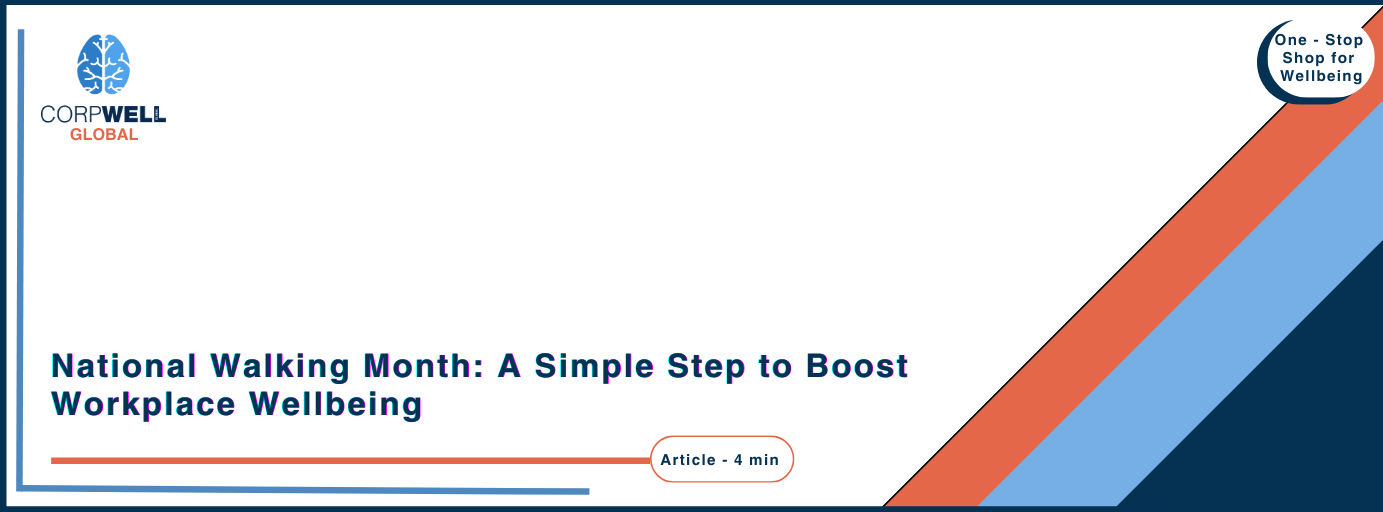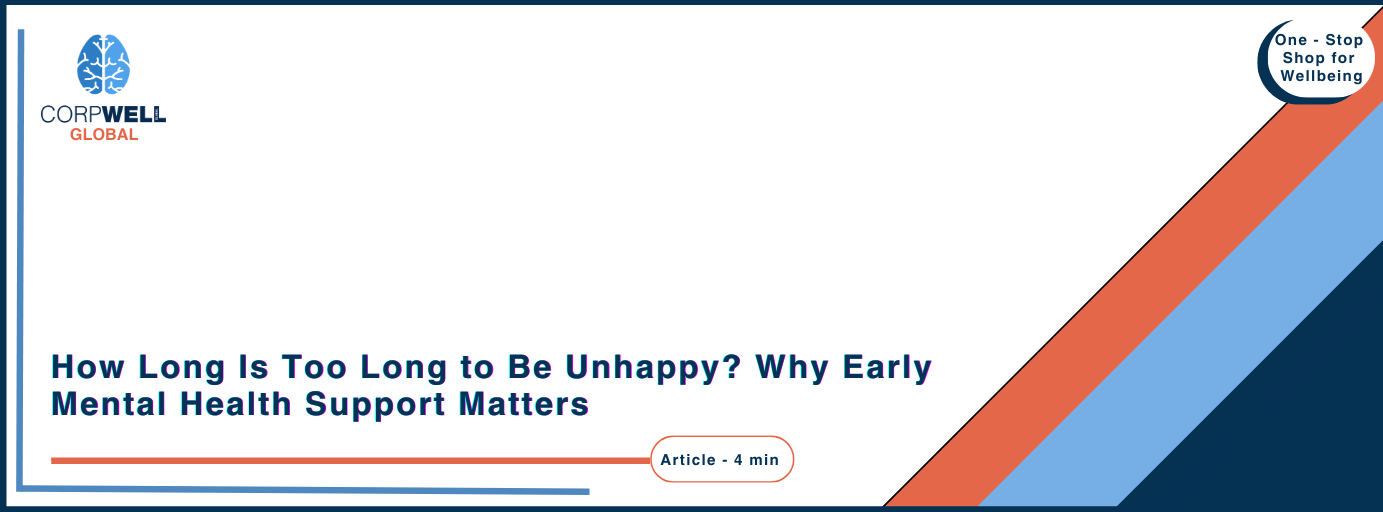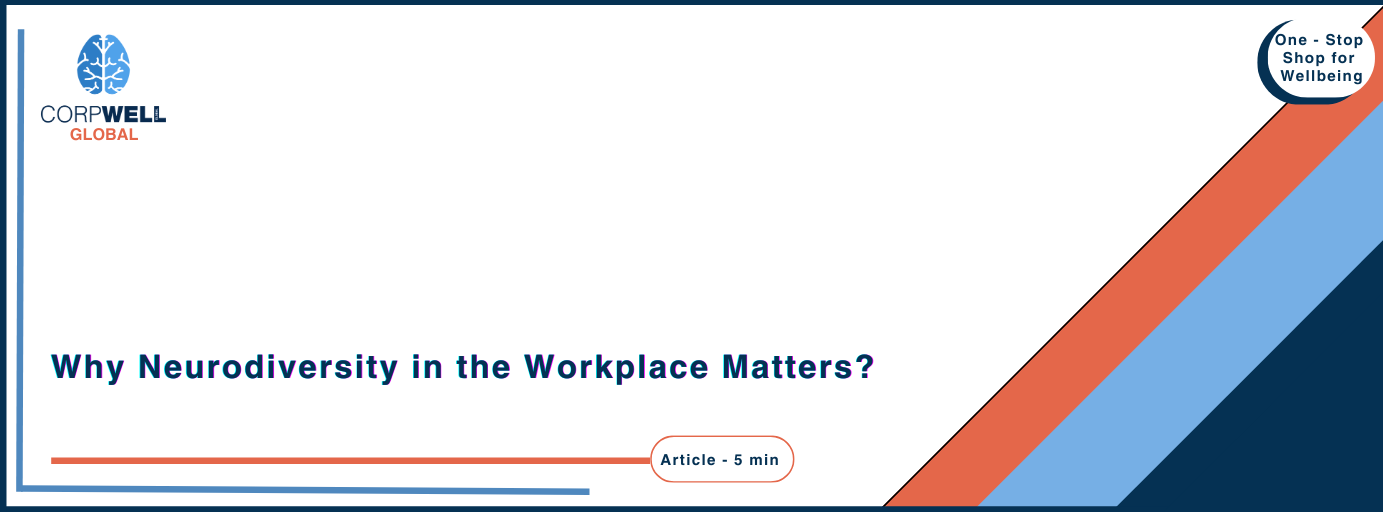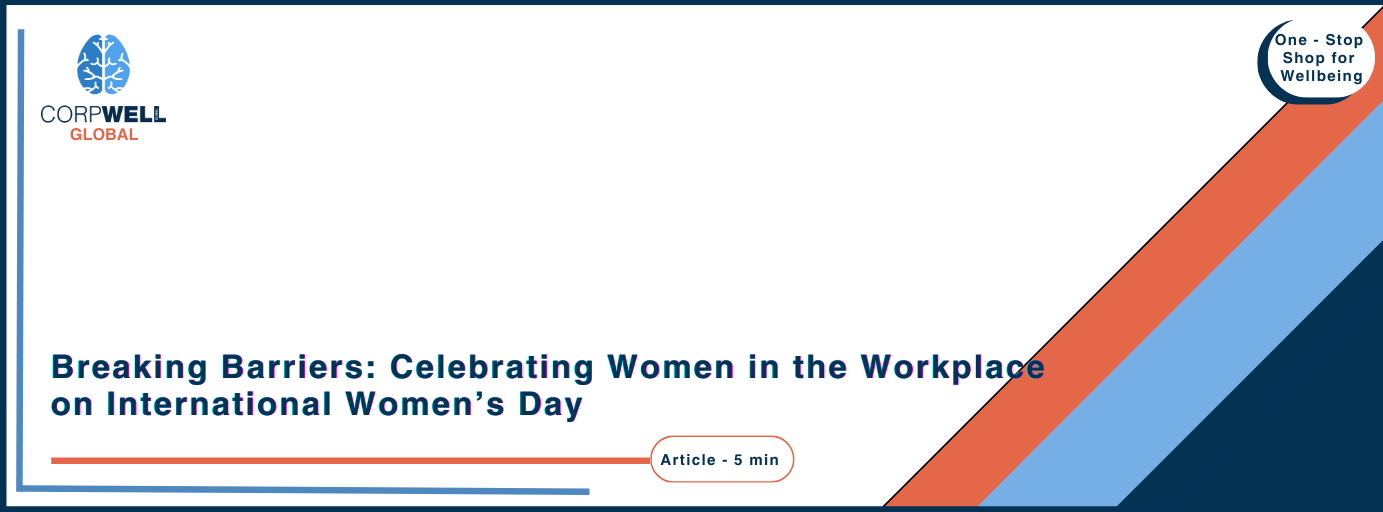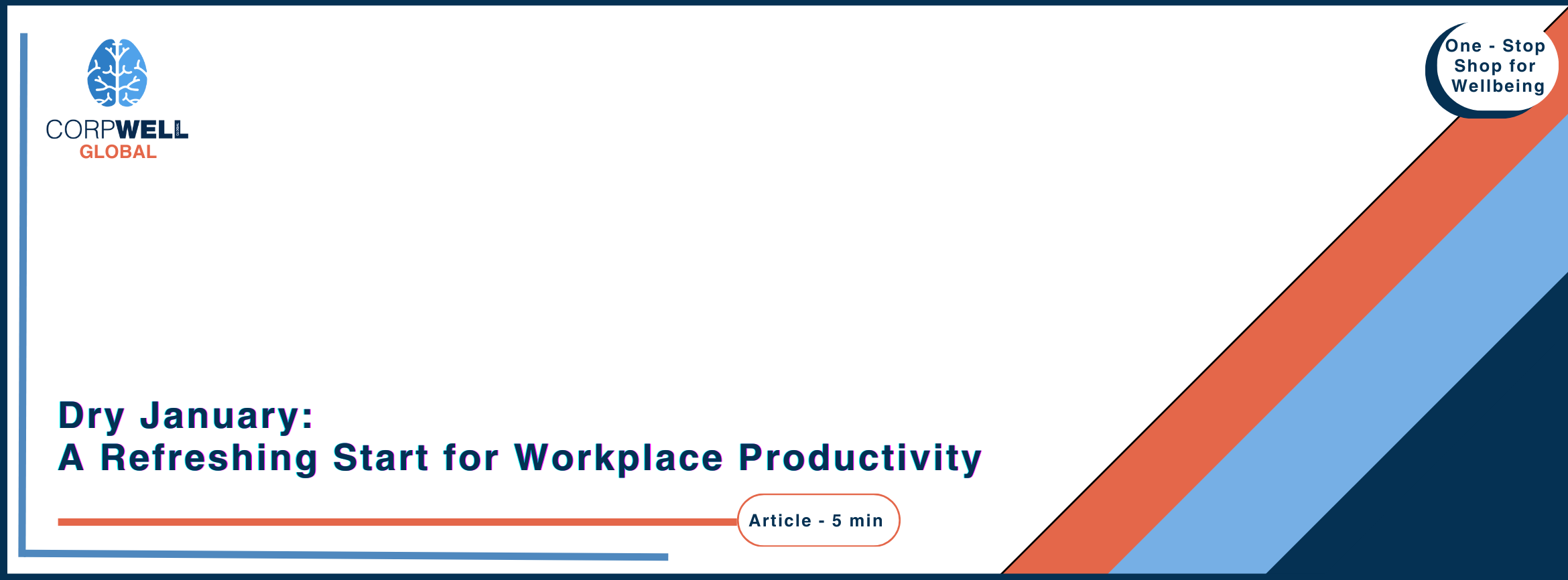National Walking Month: A Simple Step to Boost Workplace Wellbeing
What if the best wellbeing strategy this May costs nothing - but could transform your team’s mood and productivity? Welcome to National Walking Month - the perfect time to rethink how movement, especially walking, can be a powerful yet overlooked tool in your organisation’s wellbeing strategy. What is National Walking Month? Organised by Living Streets UK, National Walking Month encourages people to walk more throughout May. The campaign raises awareness about the physical, mental, and environmental benefits of walking - and it’s not just for fitness fanatics. It’s for everyone, including your team. Why It Matters in the Workplace Workplace burnout, digital fatigue, and sedentary routines are on the rise. Walking offers an antidote - one backed by science. The Benefits of Walking for Employees: - Boosts
How Long Is Too Long to Be Unhappy? Why Early Mental Health Support Matters
"Is this just a bad week… or is it something deeper?"It’s a question far too many professionals ask themselves - and ignore. But at what point does lingering unhappiness turn into a wellbeing risk? The Silent Slide into Burnout The average person waits 11 years before seeking mental health support after first experiencing symptoms (source: Mental Health Foundation). That’s not just a statistic- it’s a warning sign. In many workplaces, employees downplay their mental health because: -They fear being seen as "weak" -They worry about job security -They believe they should "just get on with it" But chronic unhappiness, when left unchecked, can snowball into serious issues like depression, burnout, anxiety disorders, or physical health conditions. 🚨 The Red Flags: When Unhappiness Becomes a Problem While everyone has off
Neurodiversity in the Workplace: Celebrating Neurodiversity Week & Creating an Inclusive Work Environment
Why should neurodiversity matter to your organisation? Did you know that 15–20% of the population is neurodivergent? Yet, workplaces are still predominantly built with neurotypical employees in mind. That means millions of talented, creative, detail-focused individuals are working in environments that don't support how they thrive. As we celebrate Neurodiversity Celebration Week (17th–23rd March), it’s the perfect time for HR leaders and CEOs to reflect: Is your workplace truly inclusive of all minds? What is neurodiversity? Neurodiversity refers to the natural variation in the way people think, learn, and process the world. It includes conditions such as: - Autism Spectrum Condition (ASC) -ADHD -Dyslexia -Dyspraxia -Tourette Syndrome -Dyscalculia Neurodivergent individuals often bring unique strengths: hyperfocus, creativity, pattern recognition, innovative problem-solving, and out-of-the-box thinking. But without the right support, these strengths can
Breaking Barriers: Celebrating Women in the Workplace on International Women’s Day
Are we really breaking the glass ceiling - or just patching the cracks? On International Women’s Day, organisations around the world take a moment to spotlight and celebrate women’s achievements. But beyond the empowering hashtags and panel talks, a pressing question remains:Are we creating sustainable change for women in the workplace - or simply applauding survival in a system that still wasn’t built for them? Let’s talk about what real celebration and inclusion look like - and how companies can walk the talk. The Reality Check: Women at Work in 2025 While there’s no denying progress, the data paints a sobering picture: -In the UK, only 8% of CEOs in the FTSE 100 are women (Gov.uk, 2024). -47% of working women say they feel unsupported during
Dry January: A Refreshing Start for Workplace Productivity
In the hustle and bustle of modern office life, it’s easy for employees to feel overwhelmed, stressed, and mentally fatigued.


